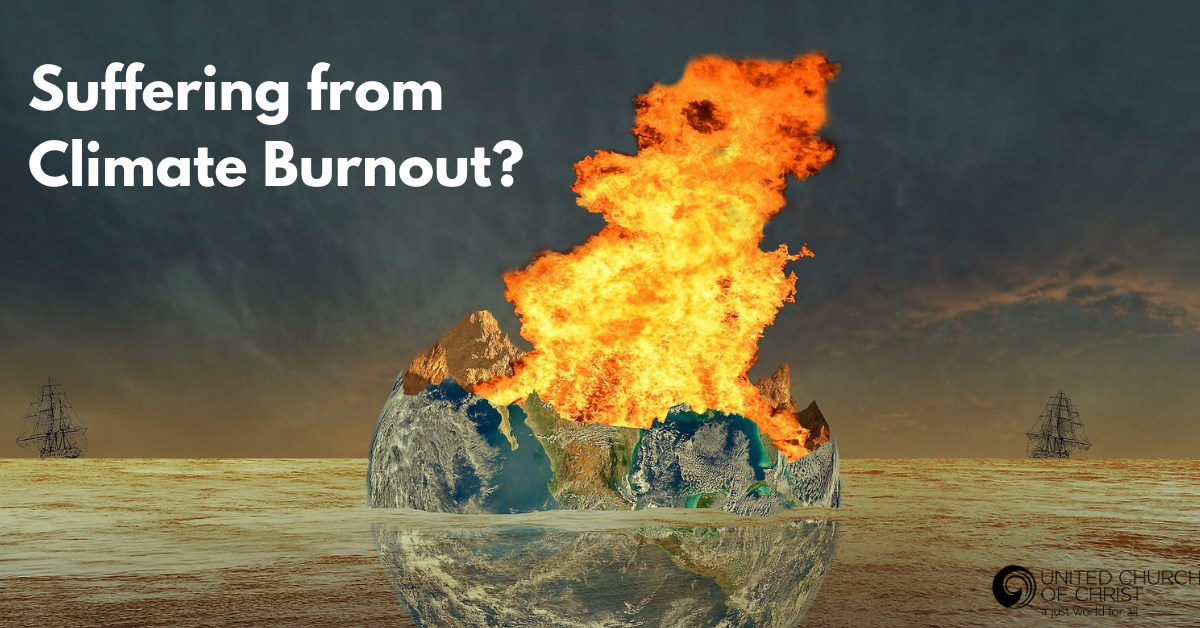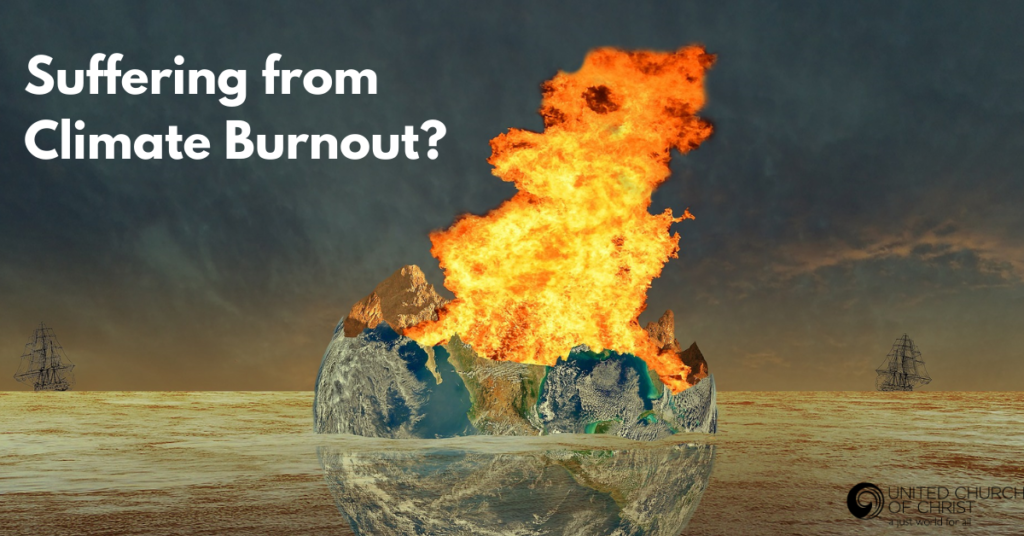Suffering from Climate Burnout? Learn from a Burnt Out Moses

After a couple of recent conversations with friends who confided that they were suffering from burnout, I found myself asking a number of questions: What exactly are we referring to when we say we feel “burnt out?” What are the causes? Why does burnout seem so prevalent these days? Could burnout for some people be connected to the psychological toll of the climate crisis? And, finally, what is to be done about burnout?
This past year the World Health Organization declared burnout was an official diagnosis for a kind of chronic workplace stress related to a lack of energy, exhaustion, negative or cynical feelings about work, and a reduced ability to do one’s job. A recent article in The Guardian has noted that a common feature of burnout is “an overwhelming sense that your work life, your career, is out of your control.” A myriad of phenomena have been connected to burnout, including financial insecurity, student debt, the decline of unions, the use of social media technology throughout the day, the gendered division of labor at home, and the internalization of cultural messages such as the idea that one is never striving hard enough or that there is more self-optimization to be done.
Anne Helen Petersen, who wrote a popular article called “How Millennials Became the Burnout Generation,” has further opinioned that burnout, like wine, comes in vast varieties that can be related to everything from one’s particular profession to the state of one’s regional economy. This made me think that perhaps there was indeed a variety of burnout related to the climate crisis, especially when one considers the staggering amount of suffering and stress that it entails along with the loss of control that a planetary-size problem inevitably involves.
To me, self-help advice for burnout never seems very helpful, but something that recently pointed me in a different direction was reading Exodus 17 and 18. In chapter 17, we first find the poignant image of Aaron and Hur holding up the hands of a weary Moses so that the staff of God does not fall. In chapter 18, we then find a burnt out Moses receiving the sage advice of his father-in-law Jethro. Jethro declares, “You will surely wear yourself out, both you and these people with you. For the task is too heavy for you; you cannot do it alone.” He goes on to assure Moses of God’s presence and to devise a plan for a community to surround Moses and help shoulder the burdens faced.
Let’s invite the voice of Jethro into how we care for God’s creation. None of us can do it alone.
The Rev. Brooks Berndt is the Minister of Environmental Justice for the United Church of Christ. He co-hosts a monthly webinar called Creation Justice Webinars. Next month, the focus will be on worker justice and climate justice.

Related News
Walking the Talk: Environmental Practices and a Commitment to Justice
St. James United Church of Christ in Hamburg, New York (a suburb of Buffalo) has been...
Read MoreThe Antidote to Power from Above
With its themes of moral reckoning and repentance, this Lenten season brings into stark relief...
Read MoreDon’t Incinerate – Innovate!
Thirty-eight years ago, the United Church of Christ's Commission for Racial Justice released a...
Read More


